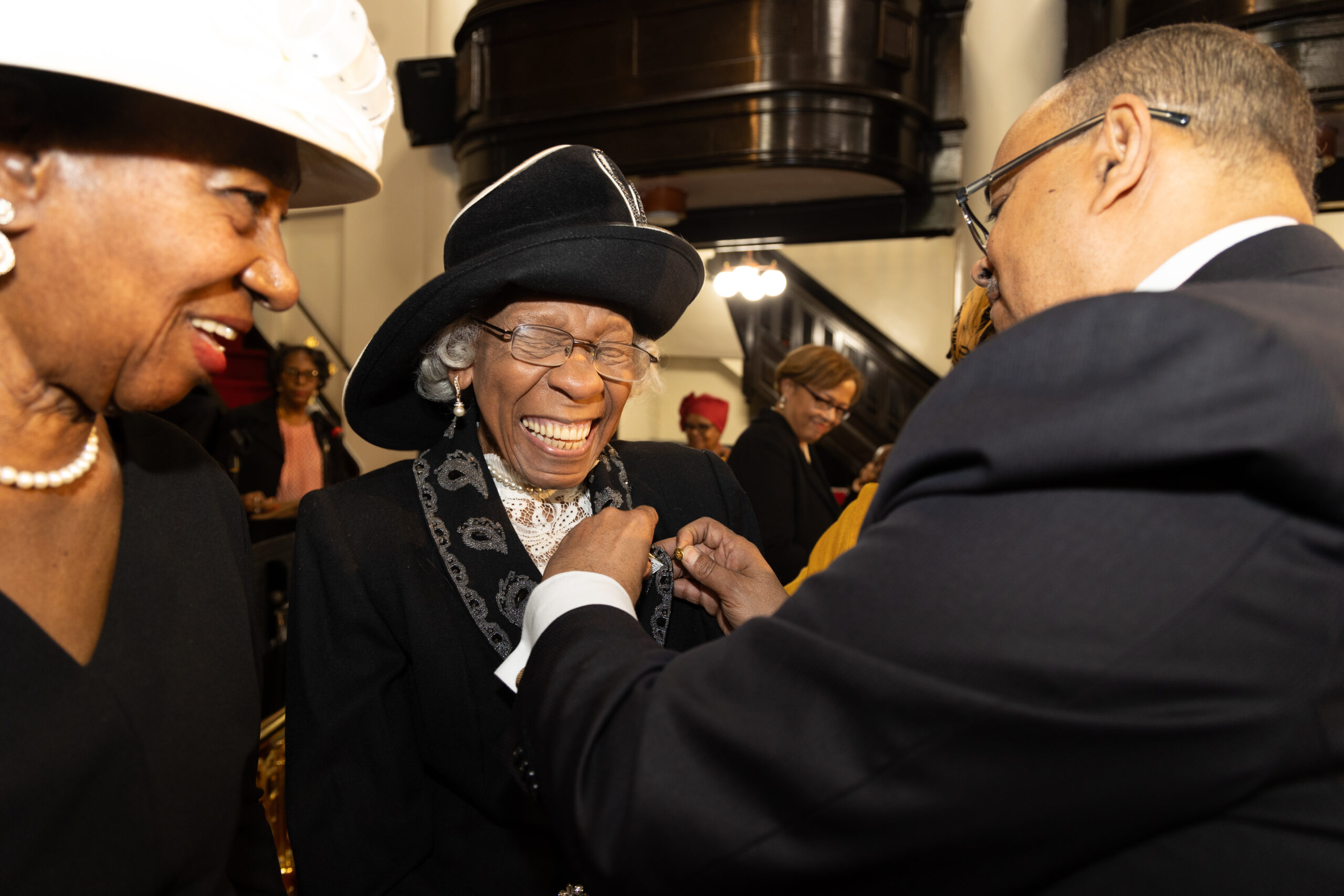Salvation up in the Manger: Advent and Holiness
Rev. M. JoDavid Sales, Ph.D., Contributing Writer
But the angel said to [the shepherds], “Do not be afraid, for see, I am bringing you good news of great joy for all the people: 11 to you is born this day in the city of David a Savior, who is the Messiah, the Lord. This will be a sign for you: you will find a child wrapped in bands of cloth and lying in a manger.” And suddenly there was with the angel a multitude of the heavenly host, praising God and saying, “Glory to God in the highest heaven, and on earth peace among those whom he favors!” (Luke 2: 10-14 NRSV)
The words the angels spoke to the shepherds were not unfamiliar to the original readers of Luke—not just because they were Christian, but also because they lived in the Roman Empire. Caesar Augustus was also called “Savior” and “Lord.” “Savior”—in imperial usage—meant that the emperor had brought “peace” to the world by way of the Roman Empire [Pax Romana]. Roman peace, of course, was attained through violent subjugation, tribute, and plunder. In the final analysis, these are the fundamental ways empires attain and maintain “peace.” In addition, there was an inscription in Rome that hailed the arrival of Augustus as “good news.” The emperor was even called a “son of god.” Though we take “gospel,” “savior,” and “Son of God” as thoroughly Christian terms today, early Christians did not. They knew these same terms were used by the Roman Empire. This lesson for us today should never be forgotten: Don’t get caught up in the language. Just because folk say “God” don’t mean they are up to godly things—and yes, I meant “don’t mean.” Ebonics is not the language of empire.
So, the angels, like Ebonics, stay reminding us of something we should ask ourselves whenever we receive news: who is delivering the message? Is the messenger an agent of empire/violence or an agent of God/goodwill? Who receives the message first? Are they the prestigious/elites or someone routinely overlooked, even nameless? Where does the message lead us first? An imperial palace or a manger?
Advent tells us; Advent reminds us; Advent forces us to remember that the message from Heaven often comes first to the bottom—the Below—the marginalized and the overlooked. Joseph and Mary were probably at a family or a close friend’s house, but there was no “couch” to sleep on. They were peasants, after all—there was no middle class in ancient times. While peasants had small living quarters, many also had a space where the animals stayed. This space was normally in or near the same house. And so Mary had to give birth to Jesus in the part of the house where the animals stayed, and so, inevitably, Jesus did not have a “crib” to sleep in. Absent a crib, his parents had to put him in a feeding trough for the animals. They laid him in the manger. And if we believe that salvation is found in a feeding trough next to animals…if we believe that the manger is where God is, then we can be saved. Advent happens out in the cut–up in a feeding trough.
We must truly be holy; that is, we must truly be radically different than the patterns of this world and transformed to proclaim that salvation is found in a feeding trough. But Holiness 101 = God’s ways aren’t our ways. To be holy is to resist the temptation to look for God immediately among the “greatest” and famous; to be holy is to first look for God among the “least” and overlooked. To be holy (to be different) is to look for God in a manger. This is the “spirit-check” of holiness.
Many followers of Jesus often believe that God and the universe commission those who are on top. They are caught up in the same spirit of domination that called Caesar the “son of God.” We routinely confuse domination with authority and authority with goodness. This confusion leads us to invest in “worldly” power and prestige, and in so doing, we lose our connection to a holy and loving God. That’s why we currently have some “Christians” in an unholy alliance with authoritarians and plunderers. Misguidedly, they mistake holiness with being better than others rather than holiness, revealing that God don’t do it the way the world does it.
To be clear, I am neither valorizing the feeding trough nor am I claiming that every palace official is evil. But there are some things that the feeding trough constantly reveals. 1) The feeding trough reveals that imperial/oppressive decrees uproot pregnant women and make them migrate to places where there is no room. 2) The feeding trough reveals that, on too many occasions, our social and worldly arrangements reflect the spirit of domination. 3) The feeding trough shows us that Jesus saves even before he does one act of ministry. His very arrival in a manger as a baby saves us—it saves us from thinking that the power of domination will ultimately save us. 4) The feeding trough ultimately reveals that God’s love and presence can be found anywhere, especially amongst the dispossessed and oppressed. O, how marvelous is our God! This is good news.





